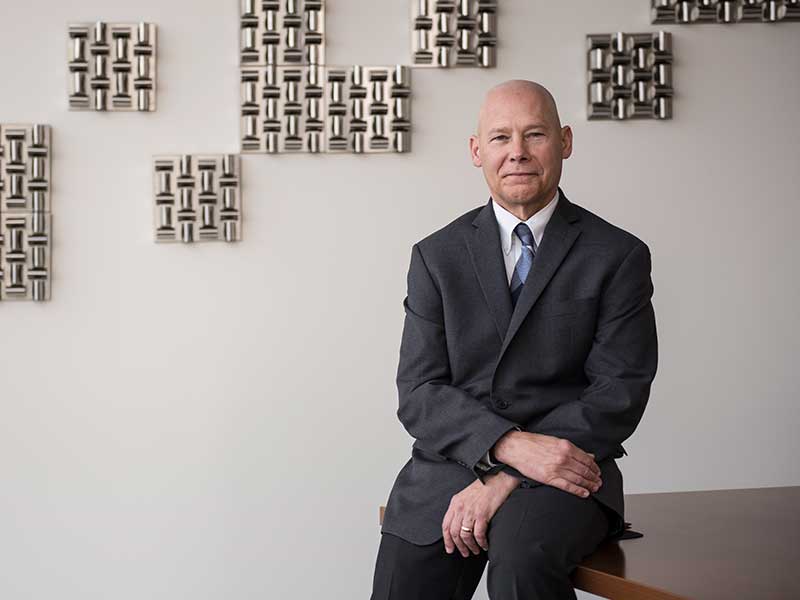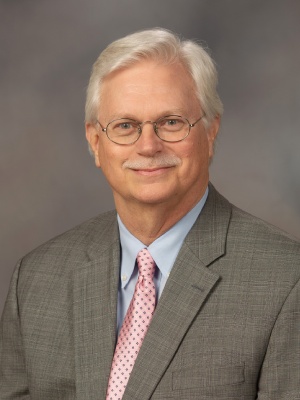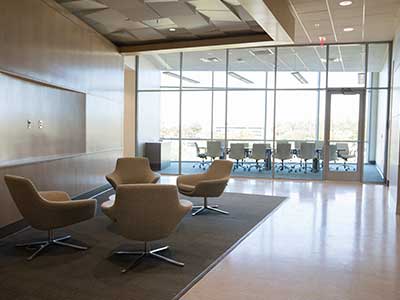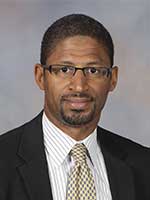Taking tech transfer to the next level

Technology transfer at the University of Mississippi Medical Center is undergoing a transformation of its own, gaining a new director and a new home.
For those unfamiliar with the concept, the Technology Transfer Office is a little like UMMC’s in-house InventHelp, a resource for creators who want to disclose, patent, license or otherwise commercialize their innovation.
“An innovation is a novel idea used for a product, service or process,” said Dr. Jim Petell, the office’s new director. But there’s another necessary component. “Use is key. An innovation isn’t innovative if no one uses it.”
Instead of tech transfer, Petell prefers the term “innovation development and licensing,” because it better reflects the process.
“It encompasses ways to protect intellectual property, such as patents, trademarks, and copyrights, and then how to commercialize it through licensing with business partners and business opportunities like spin-off companies,” Petell said.
Since his arrival in October, Petell has been meeting with UMMC’s innovators and developing strategic plans to set a mission to transform the tech transfer office.
Petell said the concept is to grow the research and innovation enterprise initiated at UMMC, and to increase its scope.
A part of the Office of Research, technology transfer has been a part of UMMC’s discovery enterprise for many years. It’s helped researchers trademark computer applications, patent eye infection treatments, and patent drug-delivery peptides for neurological disorders and cancer. However, developing the office itself hadn’t been a priority.

“Tech transfer is an area we haven’t focused on in recent years,” said Dr. Richard Summers, associate vice chancellor for research. “We did not have the expertise to do it right. Now we have someone whose job it is to wake up every day and think about ways we can improve technology transfer.”
The first steps are to develop a pipeline and provide advice to the Medical Center’s innovators on how to make their ideas flow through it.
“They don’t have to do it alone. I am creating a stewardship process to guide inventors through the complex intellectual property maze. Equally as important, we are evaluating how to provide more financial and career incentives for inventors,” Petell said.
Petell has experience on both ends, directing innovation development and technology transfer-related programs for more than 15 years, most recently at the Masdar Institute of Science and Technology in the United Arab Emirates, the University of Rhode Island and the University of North Dakota Research Foundation.
“I was a practicing scientist for more than 15 years,” said Petell, who earned a Ph.D. in chemistry from the University of California-San Diego. While working for Dow AgroSciences, he and collaborators patented several novel insecticide proteins and genes and techniques for trait modification of transgenic crops. He has 14 U.S. patents, numerous foreign patents and co-founded two biotech companies. “When I entered tech transfer, I had to completely change my way of thinking.”
For example, Petell said innovation development is an inversion of the regular scientific process. In science, ideas go through a funnel: researchers start broad, then narrow them to a specific mechanism. For successful innovation translation, ideas move the other direction: innovators take their concept and look for as many applications as possible. Can a drug compound be applied to multiple disease states? Are there ways to make a computer program useful at the bedside, on the lab bench and in the classroom?

Another big change in the Tech Transfer Office is its move to the third floor of the Translational Research Center. Dedicated in November as a space for collaborative and innovative research opportunities, the infrastructure includes laboratories and meeting spaces.
This is a valuable resource for scientists looking to build business partnerships and spin-off companies, businesses whose products originate from UMMC’s research activity.
The ultimate goal of UMMC’s innovation enterprise is to advance economic development for the institution and Mississippi. Successful ideas could turn into spin-off companies or licensing opportunities locally to partners. Both create benefits for Mississippi because businesses tend to stay where they are formed or provide new products and services for existing businesses.
“When a spin-off business forms locally, it can help grow the local economy by creating new jobs,” Petell said. “We want to retain talent in Mississippi, have people stay and not leave.” New emphasis is also being placed on developing the back end of innovation development, including business development and foundation vehicles to commercialize spin-off innovations.
A portion of the earnings from any given patent also go back to UMMC, which can help fund innovation development and seed research campus-wide.
“The finances that come back from an innovation can be a huge benefit for an institution,” Summers said. He cites cortisone, the popular steroid used to treat pain and inflammation, which paid royalties back to the Mayo Clinic for decades.

The Tech Transfer Office will also work with UMMC’s Health Innovation and Transformation Center, a new initiative to develop existing clinical and data resources to advance health care for Mississippians.
“UMMC has assets, including our biobanking, telehealth and analytics expertise, that make outside groups want to work with us,” said Terrence Hibbert, director of innovation for HIT.
Bringing in out of state start-ups or other groups for joint ventures can help develop our innovations and increase the value of UMMC spin-offs, Petell said.
“I have been truly impressed with the enthusiasm and innovative ideas of everyone that I’ve met in my first months that will grow the culture and its opportunities. With that support, there’s no reason why innovation development and commercialization can’t flourish here,” Petell said.

